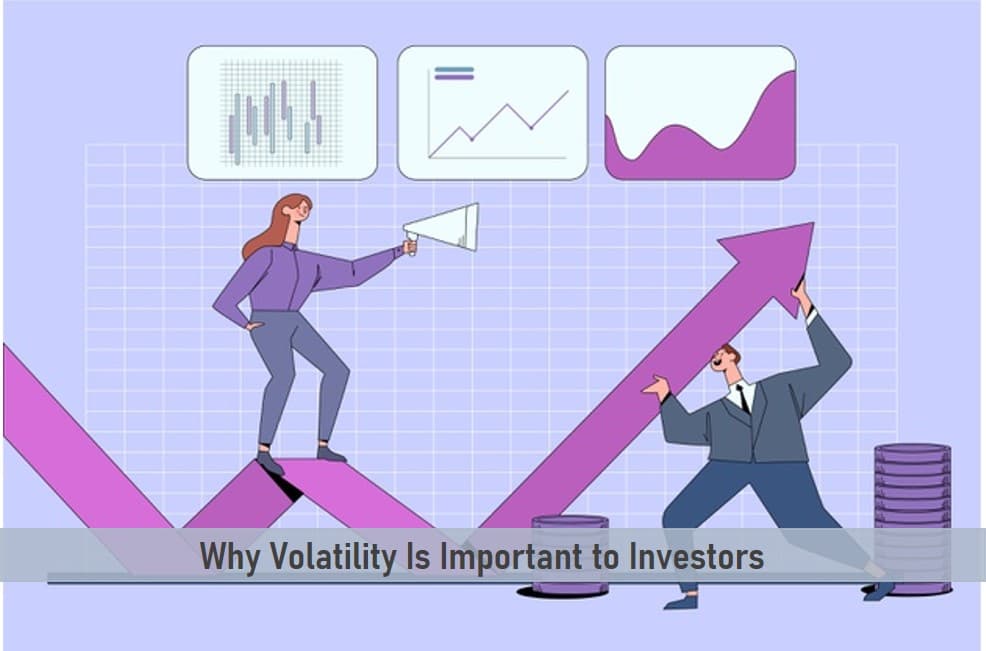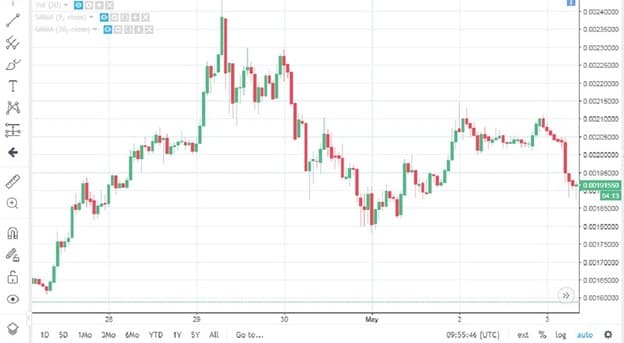
What is Volatility?
Volatility is simply a measure of dispersion about the mean or average yield of an asset. It can be measured with the aid of standard deviation that indicates how the price of a financial instrument is set about the mean/moving average.
When prices are packed together tightly, the standard deviation is small and when prices are spread far apart, the standard deviation is large. Larger standard deviations denote more dispersions of profit together with heightened investment risk.
You might think volatility is a wrong idea demanding every investor to fret and make alterations to their portfolio right away, but the movement in the stock market is dynamic offering volatility to investors to trade. The currency and cryptocurrency markets offer extremely more volatility as well.

But you must know that volatility will not affect every investor negatively. Most people view volatility as a disadvantage to markets & investors, but they don’t look at the opportunities available to investors when the market is volatile.
SEE ALSO: Beginners Guide – 8 Day Trading Indicators for Currencies and Stocks
SEE ALSO: Day Trading Hacks for Currencies and Stocks
Market Volatility Defined
Market volatility refers to the quantitative measure of a market or asset’s tendency to surge or drop quickly in a short period. Market volatility is determined with the aid of standard deviation.
Market volatility can be generated due to the disparity in trade orders in a single direction or the other. Volatile markets are known to have large price changes and/or massive trading.
Though they have negative aspects hardwired, thinking every indicator of volatility is bad or risky. Volatility instruments could make new investors doubt his/her trading strategies due to short-term fear.
Investors need to know that volatility cannot be avoided, but defining a good trading strategy is best to know a line of actions to take upfront.
Markets often rise and fall in the short term and volatility ought not to be the determining factor if an investor should exit at once or not. With a solid understanding of volatility and its sources, investors can probably benefit from the investment opportunities that volatile markets provide.
SEE ALSO: Best Volatility Indicators You Should Consider in Forex
SEE ALSO: 5 Best Ways To Trade Forex With An Economic Calendar
Why Volatility Matters
Any investor expects to receive returns on his/her investment and market volatility determines the extent to which the investor will make if he invests correctly.
Let’s use an example.
If both the lesser volatility investment and the ASX200 have provided a similar profit of about 9% every year. But the low investment has a 4% volatility and the ASX200 has volatility of about 12%. To the majority, low investment is more preferable. It is kind of like becoming wealthy slowly.
To long-term traders, high volatility investments are much riskier as they trigger a wide range of decisions. Or these kinds of investments can lead you to stray off your investment strategy and make mistakes.
Factors that Influence Volatility
Local and global economic factors like tax & interest rate policies can influence movements in the market and immensely affect volatility. For instance, in some countries, when the central bank or federal reserve assigns short-term interest rate figures for nighttime lending by financial institutions, stock markets in that country or region respond aggressively.
Inflationary pressures and industry challenges can affect the market. For instance, a key weather event in a rich oil-producing field can facilitate a rise in oil prices which consequentially increases the cost of oil-related stocks.
Strategies that Will Help in Leveraging Volatility as an Investor
- Pay no attention to short-term disruptions and minimize investing till the volatility ends.
One reliable method often used during market volatility is to remain in the market even under the current overreaction. Despite that, it may appear weak and ineffective, it may prevent you from losses related to trying to predict the market.
It is almost impractical to predict the stop to know when to exit, as it is also difficult to know when to enter and continue investing. Wrong timing can later increase losses during volatile periods.
- Buy more shares at lesser prices
Market fluctuations can as well provide opportunities a committed investor can leverage to make a profit. Volatile can create entry spots for investors whose timeframe and investment plan are long-term.
Downward market volatility offers investors who are optimistic and assume markets will turn out well down the line with the hope to buy more shares at lesser prices.
Raising your position at a discount can be a very effective strategy. You are reducing your average cost per share of that specific asset. Volatility offers a remarkable condition for investors with long-term timeframes, mostly millennials and younger generations that have the chance to improve their profits over time by making more investments.
It may be and appear ineffective then, but can contribute greatly to the investor’s turnover.
During market volatility, it is most advisable to invest funds you might have kept for a while and dissolve and reorder weak assets to bring in profits when the opportunity arises. This strategy should form your overall investment plan and profit goal.
SEE ALSO: Breakout in Forex Trading Simplified
Formulate a strategy stating your aims, goals, and timeframe before you start trading and go through it from time to time so that it works out effectively in all market conditions. It will help you scale through unpredictable periods when a lot of investors are anxious.
Less volatility in bearish markets can quickly affect portfolios while contributing panic to investors as they see the worth of their holdings rise. This usually triggers portfolio diversification by causing investors to adjust their assets in stocks & bonds, and by purchasing additional stocks as prices drop.
On the flipside, market volatility provides a bright side to investors who can take advantage of the situation as they offer more opportunities to open and close trades as well as make profits quite more quickly.
Image credit: People vector created by freepik – www.freepik.com
Read More




